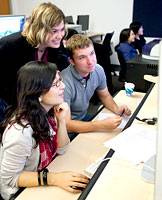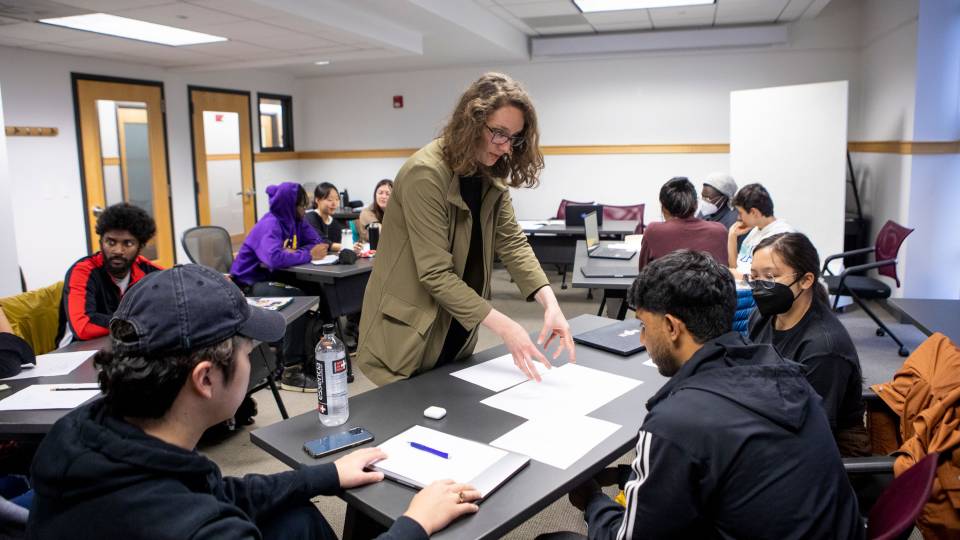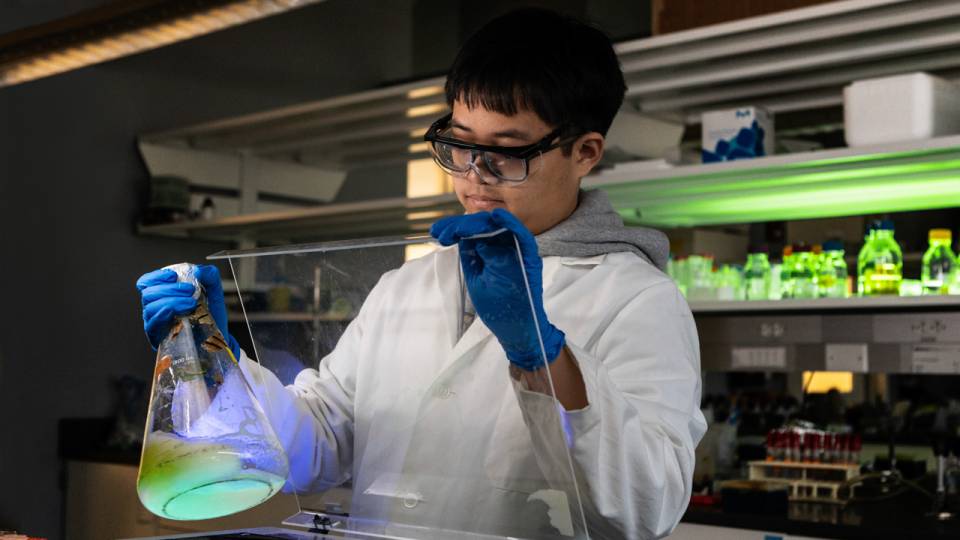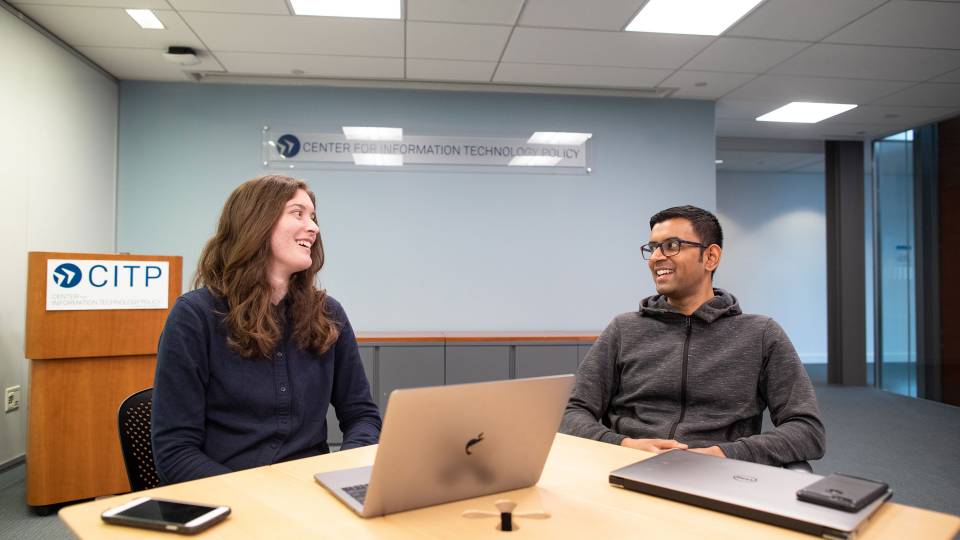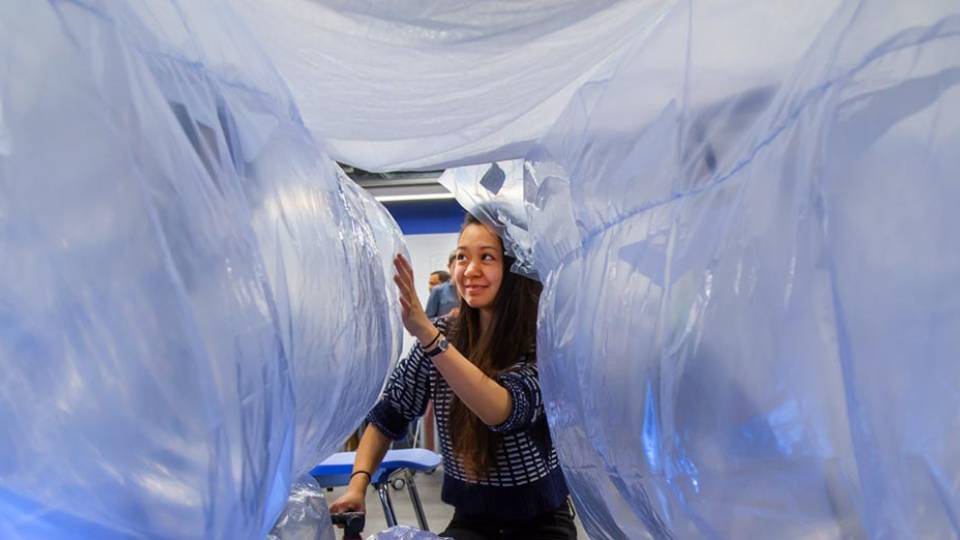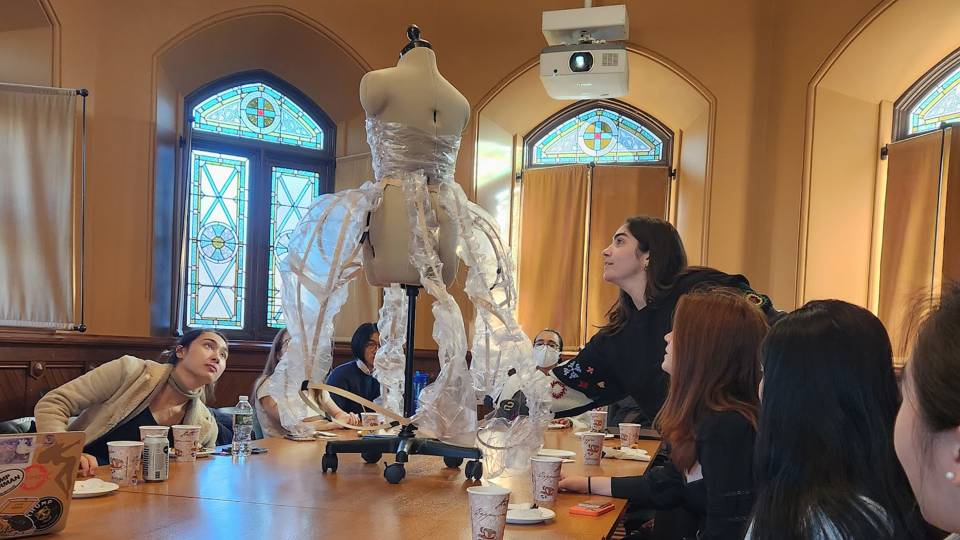Class: "Sociology of Technology"
Instructor: Janet Vertesi, a lecturer in the Council of the Humanities and sociology and a Link-Cotsen Postdoctoral Fellow in the Society of Fellows in the Liberal Arts. Vertesi specializes in the social studies of science and technology in a field that is diverse and growing, bridging the social sciences, humanities, engineering and sciences. Vertesi received her Ph.D. in science and technology studies from Cornell University. She often writes about robotic space exploration, a topic she covers in the dissertation she is revising for publication, "'Seeing like a Rover': Images in Interaction on the Mars Exploration Rover Mission."
Typically, the class is an electronics-free space -- no laptops, cell phones, digital readers or portable media players allowed. An exception is the virtual interactions session held at the University's New Media Center in the Lewis Library, where students explore a popular virtual world called "Second Life." The experience, Vertesi said, offers "an opportunity for students to try their hand in a virtual space, to understand the kind of interactions that computer systems make possible, and get a sense of how awkward it feels to interact with virtual bodies."
Description: The course, new to Princeton this year, explores the ways in which culture and social structures shape the design and use of technology, and how technology in turn influences cultural and social experience. The three-hour weekly seminar introduces the field's theoretical underpinnings, gives students the opportunity to review case studies of topics such as medical technologies and virtual interactions, and culminates in individual research projects for final papers.
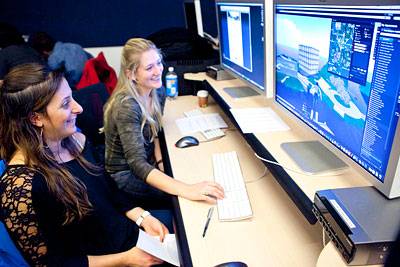
Senior Cari Levine (left) and junior Devany Schulz use "Second Life" to explore how technology makes new things possible, a central theme of the class that asks how technology affects everyday life.
Vertesi's use of case studies draws in students by focusing on objects familiar to them, while providing a new lens through which they can analyze common items. As an example, Vertesi explained how a class on gender and technology brought up Barbie dolls and women's razors, raising questions about "how particular notions of gender norms and cultural norms get embedded in technological systems, whether it's the fact that women’s razors are pink, or [that] Barbie's new job is as a computer engineer." She added, "How do objects like these embody particular values and norms that we have socially, and then reinforce those norms? One of the goals of this course is to get students away from the tired phrase that technology changes everything. What we really need to understand is what it does and does not change."
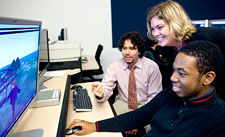
One of Vertesi's goals for the class is getting students to examine technology rather than taking its form and functions for granted. She helps senior Tiberius Borden (left) and junior Solomon Abiola apply this critical lens to their experiences in "Second Life."
Inspiration: The class grew out of Vertesi's cross-disciplinary approach to studying science and technology. She notes that many large technology companies, such as Nokia, Google and Yahoo, employ anthropologists and sociologists to study how people use their products. "These are really important questions -- maybe not so much if you're trying to decide if your TV screen should be 42 inches or 40 inches," she said. "But if you're thinking about designing a cell phone you want to sell in China, or if you want to design a laptop to give to children to improve their educational opportunities in sub-Saharan Africa, what kinds of principles of daily life are you going to need to take into account in order to make sure those technologies on the ground stick and have the effect that you intend?"
The students in the class also offer perspectives from a range of academic disciplines, including computer science, religion, sociology and the Woodrow Wilson School of Public and International Affairs. "When you introduce students to this material and new way of thinking, it provides a common language for them to talk about these issues that isn't technical and isn't limited to one of their fields. There's space for them to have these conversations," Vertesi said.
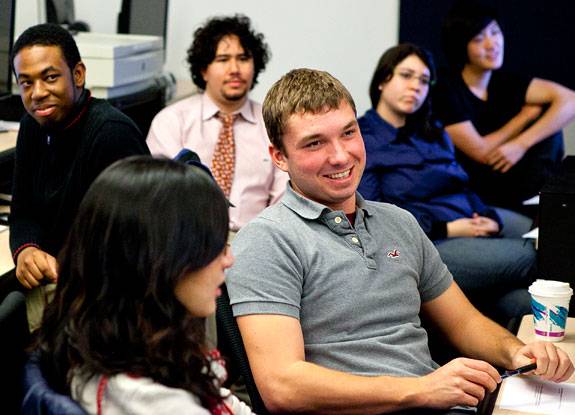
The students enrolled in the course are majoring in a variety of disciplines across the liberal arts, which, Vertesi says, "provides a common language for them to talk about these issues that isn't technical."
Students say: Senior Mark Gray, a Wilson School major, said he welcomed a chance to look at technology from the perspective of sociology, rather than the policy lens he usually employs. "I think we often take technology for granted, and don't question why some products are the way they are, or the kinds of subtle influence they have on our lives," said Gray, who is examining the evolution of the Microsoft Zune digital media player for his independent research project.
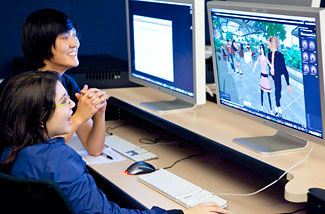
Students were asked to create avatars, or personas, to explore the virtual world called "Second Life" and to evaluate the interactive experience. Seniors Suzanne Raga (left) and Joseph Jung guide a female persona across the application's virtual islands.
Andrew Bristow, a junior majoring in sociology, also had taken classes focused on technology in other departments, so he felt a natural interest in the class offered in his home department. His research paper involves San Francisco's cable car system -- both the infrastructure required and how it influences individuals' experience of the city. In addition to learning how to "step back from an environment where technology literally is everywhere, to really evaluate how it affects my life," Bristow said he also has enjoyed the interactions in class.
"We all work together really well, and 'Dr. J' is a phenomenal professor," he said. "She's very flexible with our discussions, which is great, because they can really go in many directions. She's willing to entertain even our wildest ideas, and somehow manages to tie everything together."
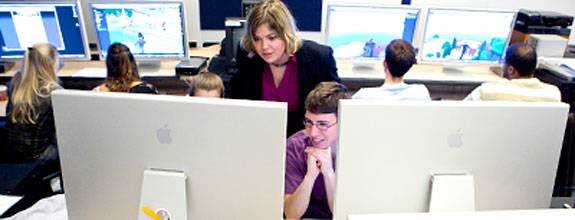
Vertesi (standing) typically has a no-electronics policy in the classroom, yet she made an exception so that students such as senior Mike DiStefano (seated) could engage in virtual interaction.
